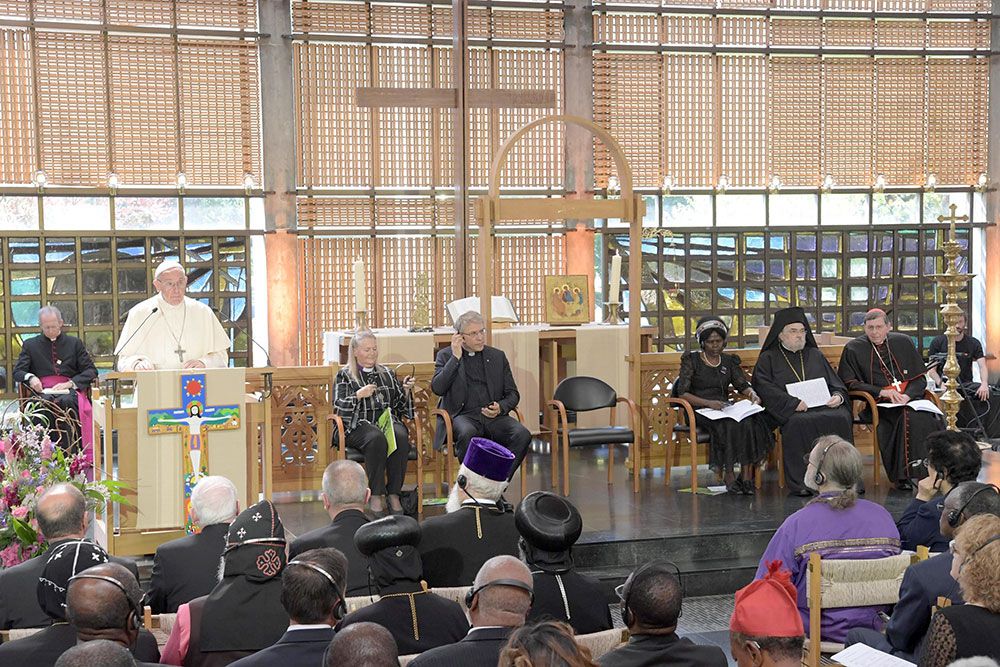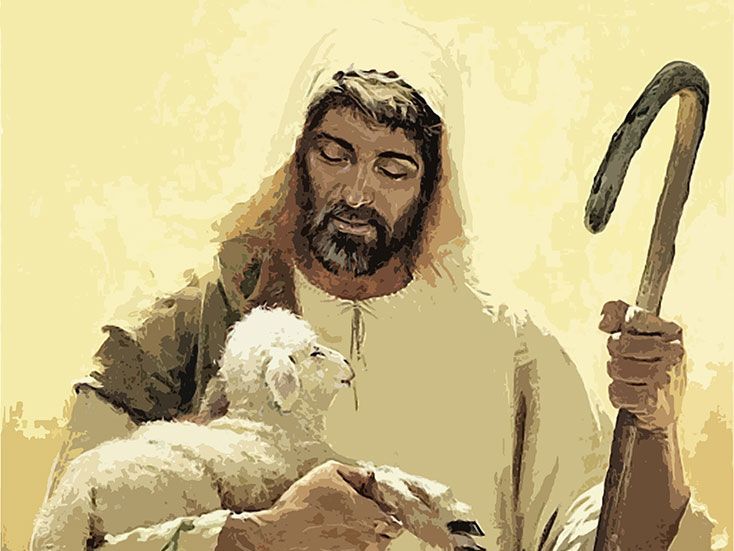God works wonders even through casual human encounters. It is for the evangelizer to bring a faith-filled quality to them. He/she may come across a serious religious ‘searcher’ on his travels or in casual correspondence. We can never know how far just one word or a simple statement can take him/her. The word of God has power to change hearts. We see that happen.
“Man does not live on bread alone” (Mt 4:4), so wrote a hostel student years ago to his companion studying in a Hindu Mission School in Kolkata. The writer had been requested by his friend to lend him a little money when he was hard up. The writer was ready to help, but was himself short of money those days. The occasion made him pass on a good thought to his friend. “Man does not live on bread alone,” he wrote.
If the sender of the message meant well, its receiver accepted the message equally well. The latter began to wonder what was the source of so profound an idea. “How true,” he mused. “Indeed, man does not live on bread alone. This is a deep thought and very powerful. Where does it come from?” When he heard that the quotation was from the Bible, he was even more interested. He had never heard about the Bible. “What is the Bible?” he inquired. He was from Arunachal Pradesh and had never been exposed to Christianity. Now he came to know, for the first time, that the Bible was the holy book of the Christians. Who are these Christians, he began to wonder. His curiosity led him further. He went to a Christian group at Jorhat, made further inquiries about Christian teachings, became interested, studied more seriously, and ultimately became a Christian. So did the original sender of the message. This latter person became the first Catholic of his own part of Arunachal Pradesh, and one of the first Catholics of the diocese of Miao and of the entire State. His name was Wanglat Lowangcha. The Catholic community in Eastern Arunachal Pradesh began with him.
Jesus wept!
We do not know when, where and how the Lord is going to touch us with His powerful Word. He overtakes us by surprise. The following story may be apocryphal. But I remember reading, years ago, about a daughter of Stalin who, brought up in atheism, was deeply impressed by these words from the Scriptures, “The Lord is my light and my salvation, whom shall I fear?” (Ps 27:1). She had been taught atheism, and it was a surprise to come across a word like the ‘Lord,’ who could be light and salvation, knowing whom one would have no reason to fear any more. She was eager to know more about this ‘Lord.’ When she went further in this search, she did find Him and her entire life was changed. We are told that she became a believer.
A Muslim friend once told me that what impressed him most in the Bible were these two words, “Jesus wept” (Jn 11:35). He asked himself, “How could a great prophet, who would be expected to be above such passing sentiments, weep for the loss of a friend? Death is such an ordinary human reality!” He was greatly touched by this side of Jesus’ personality. We Christians believe that Jesus is perfectly human and perfectly divine. It is not a new thing for us to be aware of the human dimension of His person. But it is good for us, from time to time, to look at Jesus with the eye of a ‘searcher’ and learn from this experience. It is educative.
There is the story of a great painter who had been supported financially by a friend during the long years of his training. The understanding between them was that the first to take the training would return to the village after the completion of the course and they would change roles. So, the privileged one to be supported first, true to his word, returned to his village having completed the course with great success, to replace his friend. He embraced his benefactor and kissed him. He caught hold of his hands, and was profoundly shocked when he saw that the hands of his friend had turned rough with hard work. They could no more hold a painter’s brush. He burst into tears. That moving encounter with his “benefactor” inspired him to paint the hands of Jesus, which became a classical work of art. It was only then that he fully understood the meaning of the words “He showed them His hands” (Lk 27:40). We miss so many things in the Bible because we do not create for ourselves and others similar intense moments in prayer, meditation, encounters, relationships, and other life situations.
Gospel in life’s contexts
We do not really know what words in the Bible or what truths in Christian tradition are going to strike a person and invite him/her for a change. So much depend on the contexts that emerge spontaneously and the contexts that we create, the sincerity and genuineness of the communicator and the openness of the receiver. The skill of the evangelizer consists in exposing the inquirer(s) to the right message at the right time: through the spoken or written word, through art or music, by direct or indirect communication, through proclamation, through personal relationships, in conversation, even through a soft whisper, or through translating God’s word into action in relevant and meaningful service. This is to bring the Gospel into life’s contexts.
I have met people who are interested in a serious message in the most unusual circumstances: amidst an ethnic conflict, during sports events, during a long-distance flight, in airports, in railway stations, in street corners, while staying on in a village, during free moments between classes. What struck me often was the fact that Jesus gave so much of His serious teachings in ordinary life’s contexts, in personal encounters; not necessarily during ‘lecture hours.’
Can we bring a message of peace to situations of conflict which seem to increase daily? Can we offer a message of uprightness in an atmosphere of corruption? Can we hold up a message of hope in situations of despair? Can an assurance about the future be carried to contexts of helplessness? Can a word of faith be brought to a society that is fast losing its religious convictions? These are challenges before us. There is much work that a believer can do every day of his/her life.














